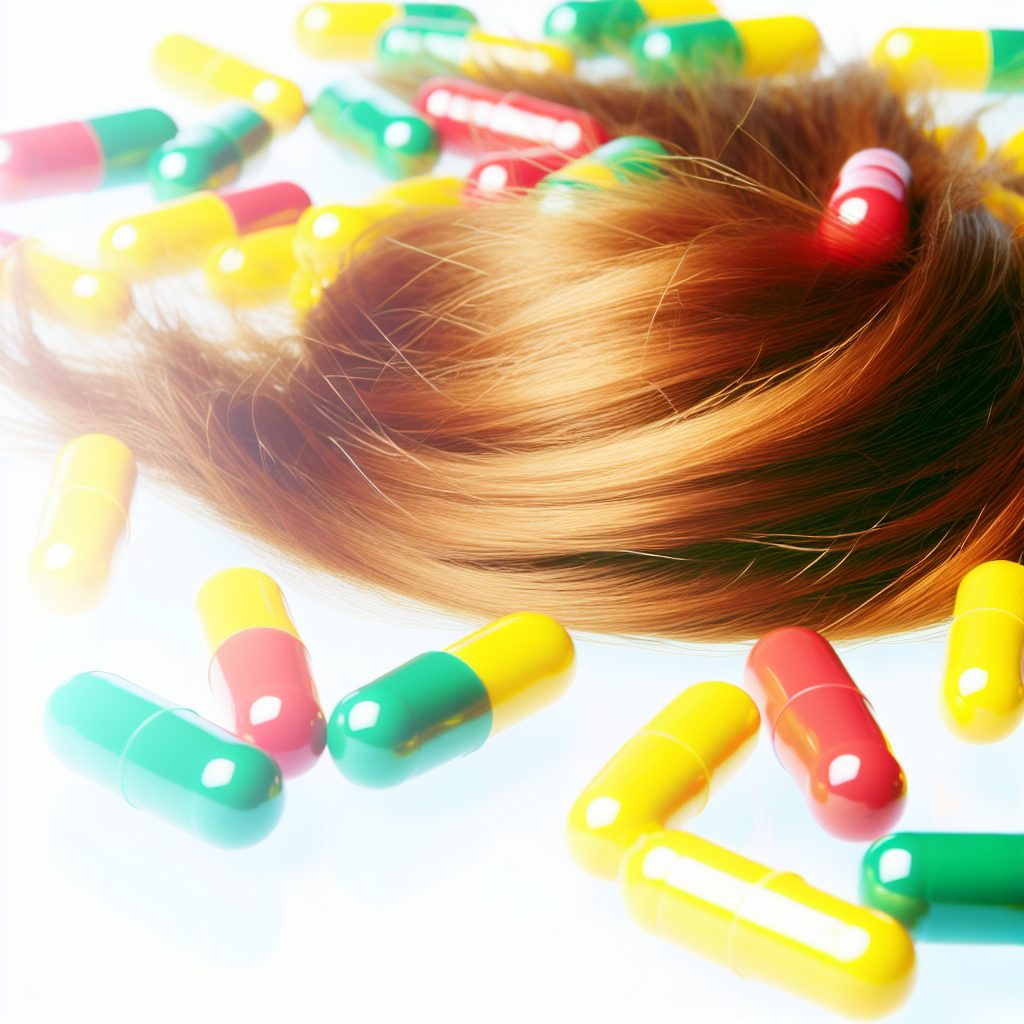If you’re looking for ways to grow thicker, shinier, and overall healthier hair, you’re not alone. Many of us struggle with hair that feels weak, breaks easily, or grows painfully slow. While external factors like stress and styling habits play a role, the solution often starts with something simpler: your diet.
Your hair needs essential nutrients to grow strong, and vitamins are among the most important. Deficiencies in vitamins like biotin, Vitamin D, and Vitamin E can directly impact hair growth, leaving your locks feeling less than vibrant. In this article, we’ll explore the best vitamins for hair growth and share practical tips to incorporate them into your lifestyle.
Why Vitamins Are Crucial for Hair Growth
Healthy hair begins within. Many of us focus exclusively on hair care products, which can only repair the surface. But true growth starts at the roots—and your hair follicles depend on nutrients in your bloodstream to stay hydrated, healthy, and productive.
For example, deficiencies in specific vitamins often manifest in your hair. If your body lacks these nutrients, you may notice hair thinning, weaker strands, reduced shine, or slowed growth. By prioritizing vitamin-rich foods or supplements, you can help your follicles produce stronger and more resilient hair.
Biotin: The Go-To Vitamin for Hair Growth
Biotin, or Vitamin B7, is one of the most popular vitamins for hair care—and for good reason. It’s known for its role in strengthening strands and promoting keratin production, the protein that makes up your hair. Without adequate biotin, your hair might grow slower, feel weaker, or become prone to shedding.
How to Add More Biotin to Your Diet Naturally
You might already be consuming biotin-rich foods without realizing it. Here are some excellent sources:
- Eggs: Especially the yolks, which are packed with biotin and protein.
- Almonds: Grab a handful for a snack rich in biotin and healthy fats.
- Sweet potatoes: Make fries, mash them, or roast them—this versatile veggie delivers a good dose of biotin.
- Spinach: Use spinach in salads, smoothies, or sautés for a nutrient boost your hair will love.
If your dietary intake is still low, consult a healthcare expert about biotin supplements. They’re widely available, but over-supplementing can have adverse effects, so aim for moderation.
Vitamin D: The Essential Nutrient for Follicle Health
Vitamin D is often called the "sunshine vitamin," and its impact on scalp health is enormous. Research shows that Vitamin D deficiencies are linked to alopecia (hair loss) as this nutrient plays a crucial role in forming new hair follicles and strengthening the existing ones.
How Can You Boost Your Vitamin D Levels?
- Soak up the sun: Spend 15–20 minutes outside a few days a week. Morning sunlight is gentle and beneficial.
- Eat Vitamin D-rich foods: Fatty fish like salmon and tuna, mushrooms, and egg yolks are great sources.
- Fortified options: Look for milk, orange juice, or cereals fortified with Vitamin D.
If you suspect your natural intake isn’t sufficient, Vitamin D supplements can help restore optimal levels—but check with your doctor first.
Vitamin E: The Ultimate Shield for Your Hair
Vitamin E acts as a protector for both hair follicles and your scalp. Its antioxidant properties fight free radical damage, which can weaken follicles, while improving circulation to stimulate growth. It’s also a hydrating powerhouse, keeping your scalp healthy and nourished.
Best Foods to Get Vitamin E Naturally
- Sunflower seeds: Snack on them or toss into your cereal for maximum benefit.
- Avocados: Versatile, creamy, and loaded with Vitamin E—perfect for toast or salads.
- Nuts: Almonds and hazelnuts are nutrient-rich options packed with healthy fats.
- Leafy greens: Spinach and kale deliver Vitamin E alongside a host of other antioxidants.
Beyond diet, you can apply Vitamin E oils directly to your scalp to promote hydration and soothe dryness—a bonus for both your scalp and your strands!
Other Key Vitamins and Minerals for Hair Growth
While Biotin, Vitamin D, and Vitamin E shine bright, other nutrients play important supporting roles:
- Vitamin A: Keeps your scalp hydrated and boosts natural oil production. Carrots, kale, and sweet potatoes are rich sources.
- Vitamin C: Helps your body build collagen, which supports healthy hair structure, and aids iron absorption. Think oranges, strawberries, and bell peppers.
- Iron & Zinc: Iron promotes oxygen-rich blood to your scalp, while zinc repairs follicles. Find them in spinach, lentils, and pumpkin seeds.
Lifestyle Tips to Support Hair Growth
Vitamins alone aren’t the only solution—how you care for your hair matters, too. These simple tweaks can amplify your results:
- Stay hydrated: Drinking enough water daily helps your scalp remain in top condition.
- Massage your scalp: Stimulate blood flow by massaging with your fingertips or nourishing oils like coconut or almond.
- Avoid overprocessing: Minimize heat damage and chemical treatments to prevent weakening your hair strands.
- Be patient: Healthy hair doesn’t happen overnight—it takes time and a consistent effort.
Final Thoughts: Start Nourishing Your Hair Today
If you’re serious about improving your hair health, look beyond quick fixes and take a closer look at your daily habits. Vitamins like Biotin, Vitamin D, and Vitamin E offer powerful benefits that can transform your hair, while Vitamin A, Vitamin C, iron, and zinc also play crucial supporting roles.
Healthier, stronger, and fuller hair is just around the corner. Start today—and let your journey to beautiful locks begin!
